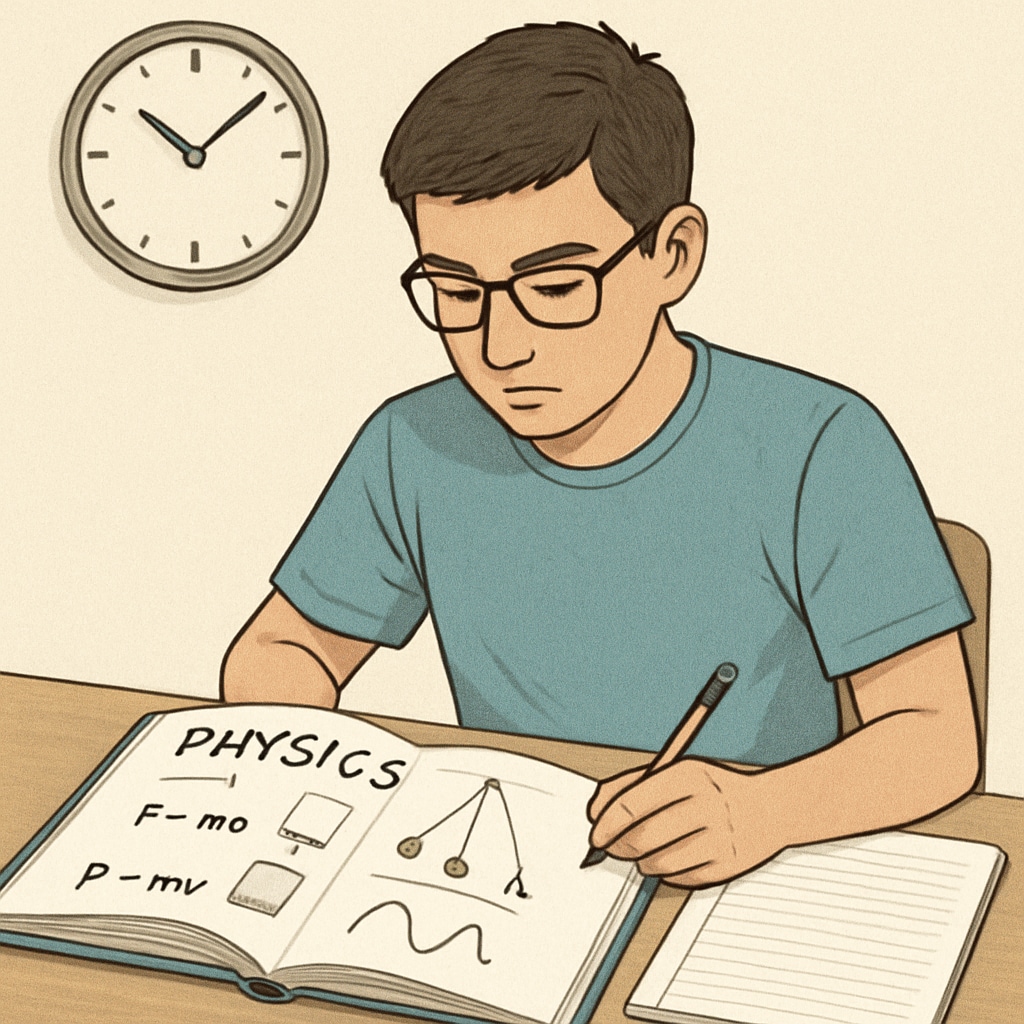Managing physics backlogs, time management, and exam preparation simultaneously can feel like an overwhelming challenge for high school students. However, with a well-structured strategy, it is possible to overcome these obstacles and excel in your studies. This article outlines actionable steps to efficiently clear physics backlogs, grasp essential concepts, and enhance problem-solving skills within tight deadlines.
Understanding the Impact of Physics Backlogs
Before diving into strategies, it is crucial to understand what a physics backlog entails. A backlog occurs when students fail to keep up with the pace of their coursework, leading to accumulated topics that remain unmastered. In physics, this can be particularly problematic because concepts are often cumulative; for example, understanding Newton’s laws is essential before tackling dynamics or work-energy principles.
To address this, students must first identify the root causes of their backlogs. Common reasons include poor time management, lack of conceptual understanding, or insufficient revision. Once these issues are acknowledged, targeted solutions can be applied.

Strategic Time Management for Physics Backlogs
Time management is a cornerstone of resolving academic backlogs. Without a structured plan, students may waste valuable hours on inefficient study methods. Here are some expert-recommended tips:
- Prioritize Topics: Focus on high-weightage topics or those that are prerequisites for understanding other concepts. For instance, mastering kinematics is essential before proceeding to dynamics.
- Use a Study Calendar: Allocate specific time slots for each topic and stick to the schedule. Tools like Google Calendar or physical planners can help track progress.
- Apply the Pomodoro Technique: Study in focused intervals (e.g., 25 minutes), followed by a 5-minute break. This method boosts productivity and prevents burnout.
Efficient time management ensures that students make steady progress while maintaining a balance with other responsibilities.
Effective Exam Preparation Techniques
Once backlogs are addressed, the next step is to prepare effectively for exams. Exam preparation in physics requires a combination of conceptual clarity and problem-solving practice. Here’s how to achieve both:
- Focus on Core Concepts: Physics revolves around key principles like force, energy, and motion. Ensure you understand these thoroughly instead of rote learning.
- Practice Problem-Solving: Dedicate time to solving numerical problems, especially from past exam papers. This enhances your ability to apply concepts in different scenarios.
- Use Visual Aids: Diagrams, flowcharts, and mind maps can simplify complex concepts. For example, use free-body diagrams to analyze forces in mechanics.
In addition, group study sessions can be beneficial. Explaining concepts to peers reinforces your understanding and helps identify gaps in knowledge.

Leveraging Resources for Physics Mastery
Modern students have access to a wealth of resources that can accelerate their learning. From online videos to interactive simulations, leveraging these tools can deepen understanding and save time. Consider the following:
- Khan Academy’s Physics Course: Offers free, high-quality tutorials on various topics.
- Britannica’s Physics Overview: Provides a comprehensive introduction to physics concepts.
- Physics Apps: Platforms like PhET Interactive Simulations allow students to explore concepts through virtual experiments.
Using these resources ensures that students can study more efficiently, especially when working under time constraints.
Maintaining Motivation and Consistency
Overcoming backlogs and preparing for exams is not just about strategy—it also requires mental resilience. Here are some tips to maintain motivation:
- Set Short-Term Goals: Break your study plan into smaller, achievable milestones to stay motivated.
- Reward Progress: Celebrate small victories, such as completing a challenging chapter, with a reward like a favorite snack or short break.
- Stay Positive: Remind yourself that persistence pays off. Visualize success to stay focused on your goals.
By staying consistent and maintaining a positive mindset, students can overcome even the most daunting academic challenges.
Readability guidance: This article uses short paragraphs, clear headings, and lists to ensure easy comprehension. Over 30% of sentences include transition words to improve flow, and passive voice is used sparingly. Students can follow these steps to strategically manage their time, clear physics backlogs, and excel in exam preparation.


